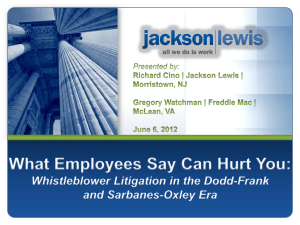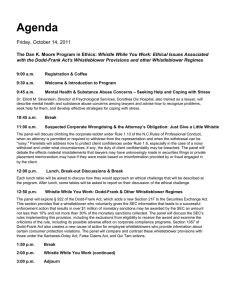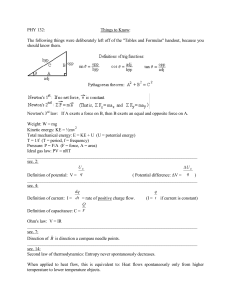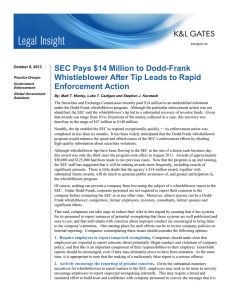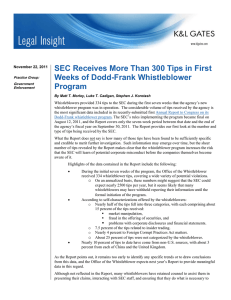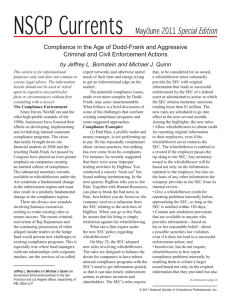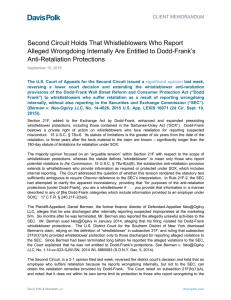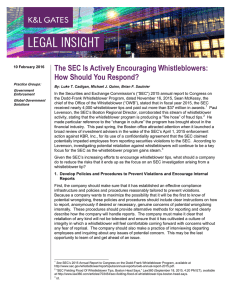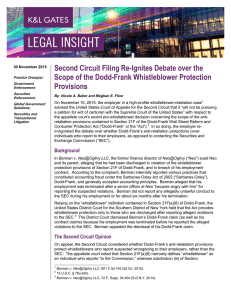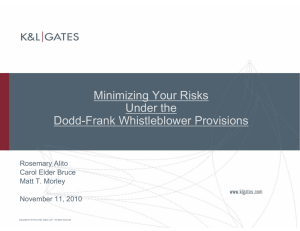How to Avoid Whistleblower Claims Under Dodd-Frank Practical Tips for Financial Institutions
advertisement
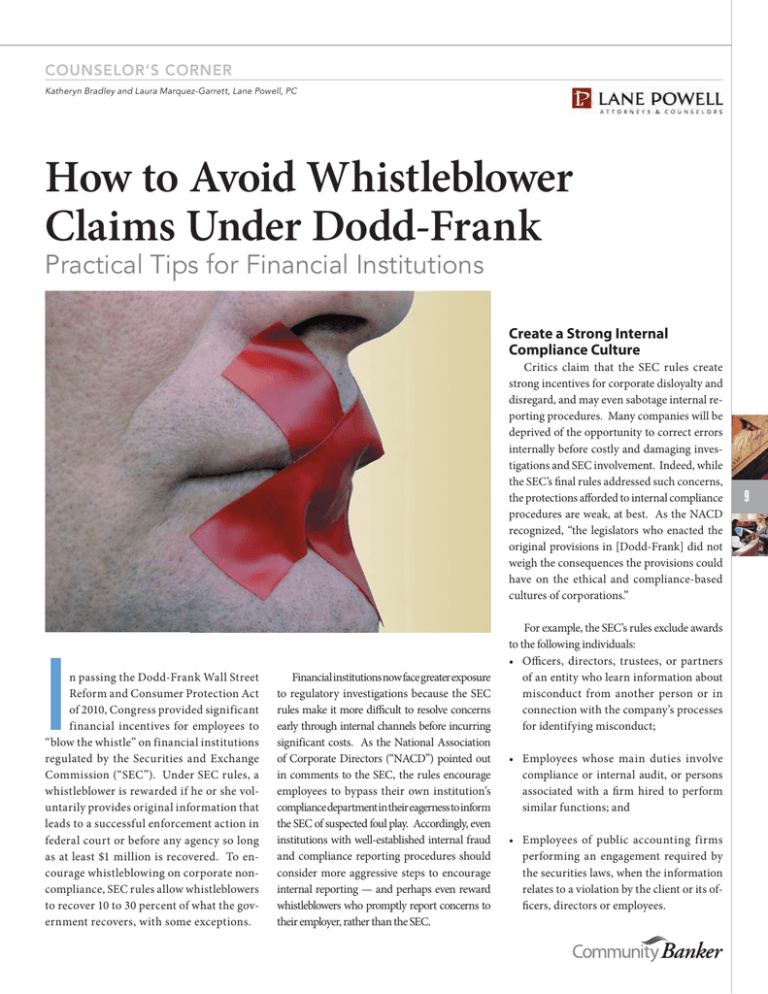
COUNSELOR’S CORNER Katheryn Bradley and Laura Marquez-Garrett, Lane Powell, PC How to Avoid Whistleblower Claims Under Dodd-Frank Practical Tips for Financial Institutions Create a Strong Internal Compliance Culture Critics claim that the SEC rules create strong incentives for corporate disloyalty and disregard, and may even sabotage internal reporting procedures. Many companies will be deprived of the opportunity to correct errors internally before costly and damaging investigations and SEC involvement. Indeed, while the SEC’s final rules addressed such concerns, the protections afforded to internal compliance procedures are weak, at best. As the NACD recognized, “the legislators who enacted the original provisions in [Dodd-Frank] did not weigh the consequences the provisions could have on the ethical and compliance-based cultures of corporations.” I n passing the Dodd-Frank Wall Street Reform and Consumer Protection Act of 2010, Congress provided significant financial incentives for employees to “blow the whistle” on financial institutions regulated by the Securities and Exchange Commission (“SEC”). Under SEC rules, a whistleblower is rewarded if he or she voluntarily provides original information that leads to a successful enforcement action in federal court or before any agency so long as at least $1 million is recovered. To encourage whistleblowing on corporate noncompliance, SEC rules allow whistleblowers to recover 10 to 30 percent of what the government recovers, with some exceptions. Financial institutions now face greater exposure to regulatory investigations because the SEC rules make it more difficult to resolve concerns early through internal channels before incurring significant costs. As the National Association of Corporate Directors (“NACD”) pointed out in comments to the SEC, the rules encourage employees to bypass their own institution’s compliance department in their eagerness to inform the SEC of suspected foul play. Accordingly, even institutions with well-established internal fraud and compliance reporting procedures should consider more aggressive steps to encourage internal reporting — and perhaps even reward whistleblowers who promptly report concerns to their employer, rather than the SEC. For example, the SEC’s rules exclude awards to the following individuals: • Officers, directors, trustees, or partners of an entity who learn information about misconduct from another person or in connection with the company’s processes for identifying misconduct; • Employees whose main duties involve compliance or internal audit, or persons associated with a firm hired to perform similar functions; and • Employees of public accounting firms performing an engagement required by the securities laws, when the information relates to a violation by the client or its officers, directors or employees. 9 Exercise care when hiring new employees. Particularly for E key employees, require background and reference checks that are performed in accordance with applicable law. However, these individuals may nonetheless qualify for an award if: • The whistleblower has a reasonable belief that (a) disclosure to the SEC is necessary to prevent the company from engaging in conduct that could cause substantial injury to investors, or (b) the company is acting in a way that would interfere with an investigation of the misconduct; or • More than 120 days have passed since (a) the whistleblower escalated the information to his company’s audit committee, legal/compliance officer, or supervisor, or (b) he or she received the information and the circumstances indicate that the audit committee, legal/compliance officer, or supervisor was aware of the information. 10 These vaguely-worded standards will likely do little to curb abuses, given the potential monetary recovery. Accordingly, financial institutions should consider the following strong internal reporting procedures to offer incentives to first report internally: www.communitybankers-wa.org • Adopt an atmosphere of ethical and law abiding conduct at every level that emphasizes your commitment to compliance with the law and ethical corporate governance. Regularly train employees to comply with all pertinent regulatory requirements. Compliance remains the best way to minimize whistleblower reports. • Intentional misconduct should not be tolerated at any level in the organization. Failing to discipline sends the wrong signal to potential whistleblowers. • Review your company’s code of conduct, ethics policy, and/or whistleblower policy to ensure that it sufficiently encourages employee reporting. Publicize policies openly and often, and make them accessible to all employees. • Recognize that a cultural shift may be required. Make reporting legitimate concerns a positive factor in promotions and raises, and consider meaningful cash rewards or bonuses based on amounts recovered or saved. SPRING 2012
